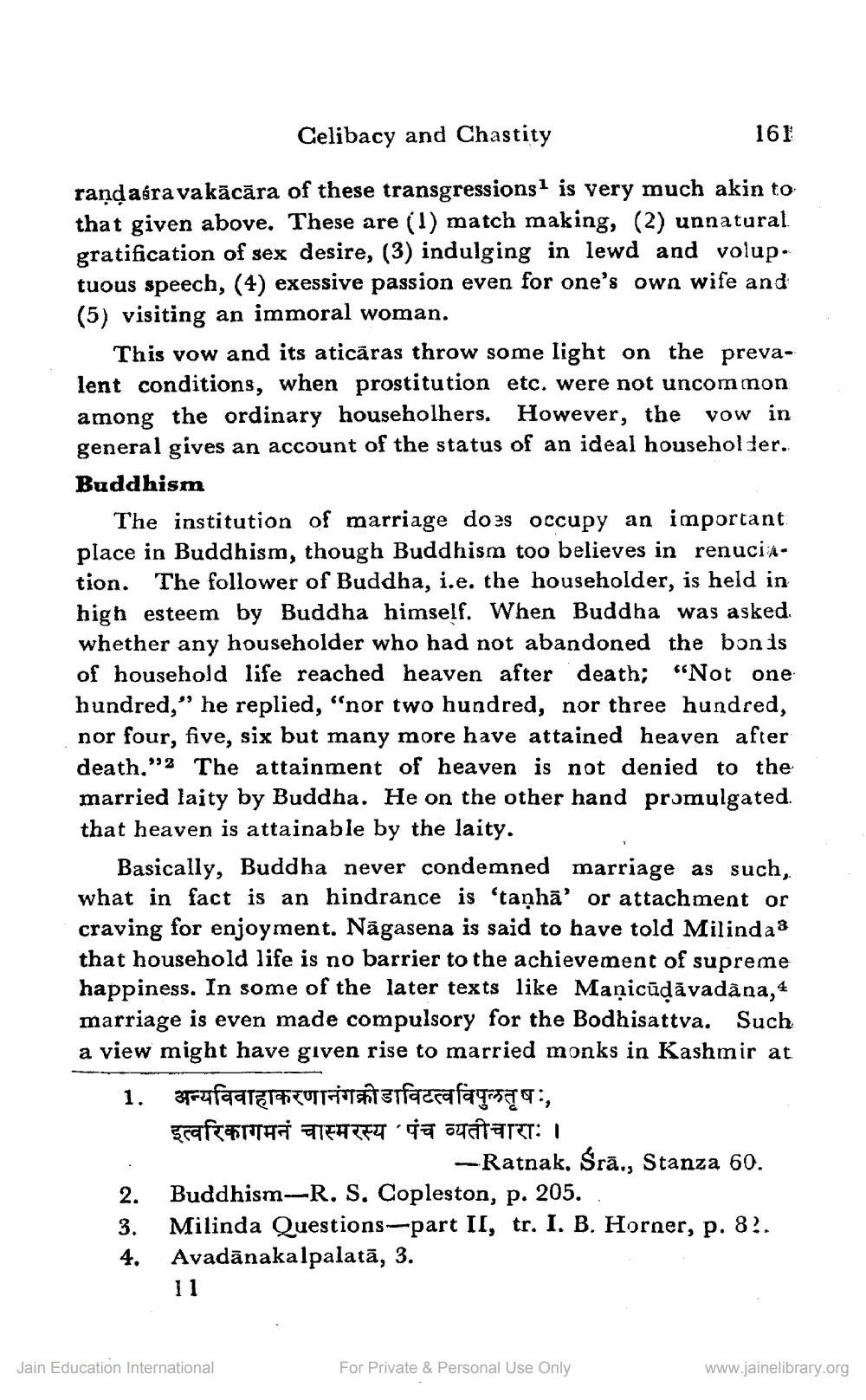________________
Celibacy and Chastity
161
randasra vakācāra of these transgressions? is very much akin to that given above. These are (1) match making, (2) unnatural gratification of sex desire, (3) indulging in lewd and volup. tuous speech, (4) exessive passion even for one's own wife and (5) visiting an immoral woman.
This vow and its aticāras throw some light on the prevalent conditions, when prostitution etc. were not uncommon among the ordinary householhers. However, the vow in general gives an account of the status of an ideal householder. Buddhism
The institution of marriage does occupy an important place in Buddhism, though Buddhism too believes in renucintion. The follower of Buddha, i.e. the householder, is held in high esteem by Buddha himself. When Buddha was asked whether any householder who had not abandoned the bon is of household life reached heaven after death; "Not one hundred," he replied, "nor two hundred, nor three hundred, nor four, five, six but many more have attained heaven after death."2 The attainment of heaven is not denied to the married laity by Buddha. He on the other hand promulgated. that heaven is attainable by the laity.
Basically, Buddha never condemned marriage as such, what in fact is an hindrance is 'tanhā' or attachment or craving for enjoyment. Nāgasena is said to have told Milindas that household life is no barrier to the achievement of supreme happiness. In some of the later texts like Manicūdāvadana, 4 marriage is even made compulsory for the Bodhisattva. Such a view might have given rise to married monks in Kashmir at 1. faat TATUT Thetfacra faceta:, इत्वरिकागमनं चास्मरस्य ‘पंच व्यतीचाराः ।
-Ratnak. Śrā., Stanza 60. 2. Buddhism-R. S. Copleston, p. 205. 3. Milinda Questions-part II, tr. I. B. Horner, p. 8?.
Avadānakalpalatā, 3.
Jain Education International
For Private & Personal Use Only
www.jainelibrary.org




